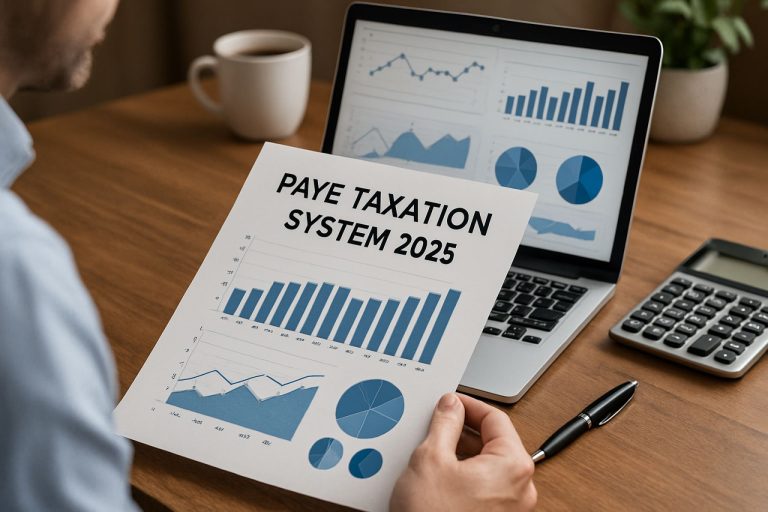
Tax Exigibility in Joint Ventures (Brazil) 2025: Navigating New Compliance Demands and Revenue Implications. This report delivers actionable insights, regulatory updates, and market data for joint venture stakeholders.
- Executive Summary: 2025 Tax Exigibility Landscape in Brazilian Joint Ventures
- Regulatory Framework: Recent Changes and Their Implications
- Key Compliance Challenges for Joint Ventures in 2025
- Market Data: Tax Liabilities and Revenue Trends
- Case Studies: Successful Tax Strategies in Brazilian Joint Ventures
- Risk Assessment: Common Pitfalls and Mitigation Tactics
- Actionable Recommendations for Joint Venture Stakeholders
- Future Outlook: Anticipated Regulatory Shifts and Market Impact
- Appendix: Methodology, Data Sources, and Glossary
- Sources & References
Executive Summary: 2025 Tax Exigibility Landscape in Brazilian Joint Ventures
The 2025 tax exigibility landscape for joint ventures (JVs) in Brazil is shaped by evolving regulatory frameworks, heightened enforcement, and a renewed focus on compliance. Tax exigibility refers to the legal obligation to pay taxes as they become due, and in the context of Brazilian JVs, this encompasses a complex interplay of federal, state, and municipal tax regimes. The Brazilian tax system is characterized by its multiplicity of taxes—such as Corporate Income Tax (IRPJ), Social Contribution on Net Profit (CSLL), PIS/COFINS, and the state-level ICMS—each with distinct rules for JVs, particularly regarding profit allocation, transfer pricing, and indirect tax liabilities.
In 2025, the Brazilian government continues to prioritize tax reform and digitalization, with the Receita Federal do Brasil (RFB) intensifying scrutiny of JV structures to curb tax evasion and aggressive tax planning. The implementation of the Public Digital Bookkeeping System (SPED) and the expansion of e-invoicing requirements have increased transparency, making it more challenging for JVs to exploit regulatory gaps. Notably, the ongoing debate over the unification of consumption taxes (PEC 45/2019 and PEC 110/2019) could further impact JV tax obligations, although full implementation is not expected until after 2025 Receita Federal do Brasil.
For multinational and domestic investors, the principal risks in 2025 revolve around the correct classification of JV arrangements (contractual vs. corporate), the allocation of taxable income, and the application of transfer pricing rules. The RFB’s updated guidelines on transfer pricing, aligned with OECD standards, require JVs to maintain robust documentation and justify intercompany transactions at arm’s length, increasing compliance costs and audit risks OECD. Additionally, the Supreme Federal Court (STF) has issued landmark decisions affecting the tax base for PIS/COFINS and the deductibility of certain expenses, directly influencing JV tax planning strategies Supremo Tribunal Federal.
In summary, the 2025 tax exigibility environment for Brazilian JVs is defined by greater regulatory clarity, digital enforcement, and alignment with international standards. Companies must proactively adapt to these changes, ensuring compliance through enhanced governance, real-time reporting, and strategic tax planning to mitigate risks and capitalize on emerging opportunities in Brazil’s dynamic market.
Regulatory Framework: Recent Changes and Their Implications
In recent years, Brazil’s regulatory landscape regarding tax exigibility in joint ventures (JVs) has undergone significant changes, with 2024 and 2025 seeing the implementation of new rules that directly impact the structuring and operation of these business arrangements. The Brazilian Federal Revenue Service (Receita Federal do Brasil) has issued updated guidance clarifying the tax treatment of income, profit distribution, and cost-sharing mechanisms within JVs, particularly in response to evolving business models and international best practices.
One of the most notable changes is the stricter delineation between contractual and corporate joint ventures for tax purposes. Contractual JVs, which do not form a separate legal entity, are now more closely scrutinized regarding the allocation of revenues and expenses among the partners. The Receita Federal’s 2024 guidance emphasizes that each partner must recognize their proportional share of income and costs directly in their tax filings, regardless of the JV’s internal accounting. This approach aims to prevent tax deferral and ensure transparency, aligning with the OECD’s Base Erosion and Profit Shifting (BEPS) recommendations (OECD).
For corporate JVs, which are structured as separate legal entities, the tax exigibility remains tied to the distribution of profits. However, recent changes have tightened the rules on transfer pricing and thin capitalization, particularly for cross-border JVs. The Receita Federal’s new transfer pricing regulations, effective from 2024, require JVs to adopt the arm’s length principle more rigorously, impacting how intercompany transactions are valued and taxed (Deloitte Brazil). This has significant implications for multinational JVs, especially in sectors like energy, infrastructure, and technology, where complex cost-sharing and intellectual property arrangements are common.
Additionally, the Brazilian tax authorities have increased audit activity and digitalization of tax compliance processes, leveraging e-invoicing and real-time data reporting to monitor JV transactions more closely (KPMG Brazil). This heightened scrutiny means that JV partners must maintain robust documentation and ensure that their tax positions are defensible under the new rules.
In summary, the recent regulatory changes in Brazil demand greater diligence from JV participants regarding tax compliance, documentation, and the structuring of their agreements. These developments are expected to increase administrative burdens but also provide clearer guidelines, reducing legal uncertainty and aligning Brazil with global tax standards.
Key Compliance Challenges for Joint Ventures in 2025
Tax exigibility remains a central compliance challenge for joint ventures (JVs) operating in Brazil, particularly as the country continues to refine its tax framework in 2025. The Brazilian tax system is characterized by its complexity, with multiple layers of federal, state, and municipal taxes, and frequent regulatory updates. For JVs, this environment creates significant risks related to tax assessment, collection, and reporting.
One of the primary issues is the determination of tax liability between the JV entity and its partners. Brazilian law distinguishes between contractual and corporate JVs, with each structure facing different tax treatments. In contractual JVs, tax authorities may attribute income and related tax obligations directly to the partners, while corporate JVs are taxed as separate legal entities. This distinction affects the calculation and payment of key taxes such as Corporate Income Tax (IRPJ), Social Contribution on Net Profit (CSLL), and indirect taxes like PIS/COFINS and ICMS. The risk of misclassification or misinterpretation of the JV structure can lead to double taxation or unexpected tax assessments, a concern highlighted in recent guidance from Câmara dos Deputados and Receita Federal do Brasil.
Transfer pricing is another critical area, especially for cross-border JVs. The Brazilian transfer pricing rules, which are undergoing alignment with OECD standards, require careful documentation and compliance to avoid penalties. In 2025, the implementation of new transfer pricing regulations is expected to increase scrutiny on intra-group transactions, making it essential for JVs to maintain robust documentation and ensure arm’s length pricing, as noted by OECD and Deloitte Brazil.
Additionally, the digitalization of tax administration—through initiatives like the Public Digital Bookkeeping System (SPED)—demands that JVs invest in technology and processes to ensure accurate and timely tax filings. Non-compliance can result in significant fines and reputational damage, as emphasized in recent reports by KPMG Brazil.
- Complexity in distinguishing tax obligations between JV partners and the JV entity
- Risks of double taxation or misclassification
- Heightened transfer pricing scrutiny and documentation requirements
- Need for digital compliance and real-time tax reporting
In summary, tax exigibility in Brazilian JVs in 2025 requires proactive compliance strategies, ongoing monitoring of regulatory changes, and investment in digital tax solutions to mitigate risks and ensure operational continuity.
Market Data: Tax Liabilities and Revenue Trends
In 2025, the landscape of tax exigibility for joint ventures (JVs) in Brazil is shaped by evolving regulatory frameworks and heightened scrutiny from tax authorities. Tax exigibility refers to the legal obligation to pay taxes, and in the context of Brazilian JVs, it encompasses the assessment, collection, and potential disputes over federal, state, and municipal taxes. The Brazilian Federal Revenue Service (Receita Federal do Brasil) has intensified its oversight of JV structures, particularly regarding the allocation of profits, transfer pricing, and the characterization of legal entities for tax purposes.
Recent data indicate that tax liabilities arising from JVs have increased, driven by stricter enforcement of rules on profit distribution and the deductibility of expenses. According to the PwC Brazil Tax Guide 2024, the effective tax rate for JVs can range from 34% to 45%, depending on the structure and sector. This is due to the combined impact of Corporate Income Tax (IRPJ), Social Contribution on Net Profit (CSLL), and indirect taxes such as PIS/COFINS. The guide also notes a trend toward increased tax assessments related to the reclassification of contractual JVs as de facto partnerships, which can trigger additional tax liabilities.
Revenue trends for JVs in Brazil are closely linked to tax compliance and the ability to optimize tax structures. The Deloitte Brazil Taxation Report 2024 highlights that JVs in sectors such as energy, infrastructure, and agribusiness have seen revenue growth of 8-12% year-over-year, but also face higher tax burdens due to sector-specific levies and increased audit activity. The report underscores the importance of robust tax planning, as disputes over tax exigibility can result in significant financial provisions and impact reported revenues.
- Tax authorities are increasingly challenging the allocation of costs and revenues between JV partners, leading to more frequent audits and adjustments.
- Recent court decisions have clarified, but also complicated, the criteria for tax exigibility in JVs, particularly regarding the distinction between contractual and corporate JVs.
- Multinational JVs are subject to additional scrutiny under Brazil’s transfer pricing rules, which were updated in 2023 to align with OECD standards (OECD).
In summary, 2025 is marked by increased tax exigibility for JVs in Brazil, with revenue trends reflecting both growth opportunities and the challenges of navigating a complex and evolving tax environment.
Case Studies: Successful Tax Strategies in Brazilian Joint Ventures
Tax exigibility—the legal obligation to pay taxes—plays a pivotal role in structuring joint ventures (JVs) in Brazil. The country’s complex tax system, which includes federal, state, and municipal levies, requires JV partners to adopt sophisticated strategies to ensure compliance while optimizing their tax burden. Recent case studies from 2024 and early 2025 highlight how leading JVs have navigated these challenges to achieve both regulatory compliance and financial efficiency.
One notable example is the partnership between Votorantim Cimentos and Holcim in the cement sector. Their JV structure was designed to allocate tax liabilities based on each partner’s operational contributions and profit-sharing arrangements. By leveraging the “Sociedade em Conta de Participação” (SCP) model, the JV minimized exposure to double taxation on profits and streamlined the allocation of PIS/COFINS and ICMS taxes. This approach was validated by a favorable ruling from the Brazilian Federal Revenue Service, which recognized the SCP’s tax transparency for income tax purposes, allowing profits to be taxed only at the partner level rather than at both the JV and partner levels.
Another instructive case is the energy JV between Enel Brasil and Eletrobras. Here, the partners implemented a centralized tax compliance system, ensuring that all indirect taxes (such as ISS, ICMS, and IPI) were properly accounted for in each transaction. This system enabled the JV to avoid cascading tax effects and benefit from available tax credits, particularly under the non-cumulative regime for PIS/COFINS. The JV also proactively engaged with local tax authorities to secure advance tax rulings, reducing the risk of future disputes and penalties.
These case studies underscore the importance of early tax planning, transparent profit allocation, and proactive engagement with tax authorities in Brazilian JVs. They also illustrate the value of choosing the appropriate legal structure—such as SCP or a formal consortium—to optimize tax exigibility. As Brazil continues to refine its tax regulations, especially with ongoing discussions around tax reform in 2025, successful JVs will be those that adapt their strategies to the evolving landscape while maintaining rigorous compliance and maximizing available tax efficiencies (Deloitte Brazil).
Risk Assessment: Common Pitfalls and Mitigation Tactics
Tax exigibility in Brazilian joint ventures (JVs) presents a complex risk landscape, shaped by evolving regulations, frequent tax authority scrutiny, and the intricate nature of JV structures. Common pitfalls stem from misinterpretation of tax obligations, inadequate documentation, and failure to align JV agreements with Brazil’s tax framework. In 2025, these risks are heightened by ongoing reforms and increased digitalization of tax enforcement by the Receita Federal do Brasil.
Common Pitfalls
- Misclassification of JV Structure: Many foreign investors mistakenly treat JVs as mere contractual arrangements, overlooking that Brazilian law often treats them as separate legal entities for tax purposes. This misclassification can lead to unexpected corporate income tax (IRPJ) and social contribution on net profit (CSLL) liabilities.
- Transfer Pricing Non-Compliance: JVs involving cross-border transactions are subject to Brazil’s strict transfer pricing rules. Failure to document and justify intercompany pricing can result in significant adjustments and penalties, as highlighted in recent enforcement actions by the Receita Federal do Brasil.
- Indirect Tax Oversights: The complex web of federal, state, and municipal taxes—such as PIS/COFINS, ICMS, and ISS—often leads to errors in tax calculation and credit utilization, especially when JV activities span multiple jurisdictions.
- Profit Distribution Traps: Distributions to JV partners may trigger withholding tax (IRRF) if not structured properly, particularly when involving non-resident entities. Recent guidance from the Receita Federal do Brasil has increased scrutiny on disguised profit distributions.
Mitigation Tactics
- Early Tax Structuring: Engage tax advisors during the JV formation phase to ensure the structure aligns with Brazilian tax law and minimizes exposure to IRPJ, CSLL, and indirect taxes.
- Robust Documentation: Maintain comprehensive records of all JV agreements, transfer pricing studies, and tax filings to support positions during audits.
- Regular Compliance Reviews: Conduct periodic tax health checks, leveraging digital tools and external audits, to identify and rectify compliance gaps before they escalate.
- Alignment with Local Partners: Ensure all partners understand their tax obligations and reporting requirements, fostering transparency and reducing the risk of joint liability for tax debts.
By proactively addressing these pitfalls and implementing robust mitigation strategies, JVs in Brazil can significantly reduce their tax exigibility risks and avoid costly disputes with the Receita Federal do Brasil.
Actionable Recommendations for Joint Venture Stakeholders
For stakeholders involved in joint ventures (JVs) in Brazil, tax exigibility remains a critical area requiring proactive management, especially as the country continues to refine its tax framework in 2025. The Brazilian tax environment is characterized by complex federal, state, and municipal layers, and JVs are subject to specific scrutiny regarding the allocation and recognition of revenues, costs, and profits. To mitigate risks and optimize tax positions, stakeholders should consider the following actionable recommendations:
- Clarify the Legal Structure and Tax Classification: The tax treatment of a JV in Brazil depends on whether it is structured as a consortium, a partnership, or a corporate entity. Each structure has distinct tax implications, particularly regarding the incidence of Corporate Income Tax (IRPJ), Social Contribution on Net Profit (CSLL), and indirect taxes such as PIS/COFINS and ISS. Stakeholders should ensure that the JV agreement clearly defines the legal nature of the entity and aligns with the intended tax outcomes. Consulting the latest guidance from the Receita Federal do Brasil is essential.
- Implement Robust Transfer Pricing Policies: In JVs involving cross-border transactions or foreign partners, transfer pricing rules are strictly enforced. Stakeholders must document and justify intercompany pricing arrangements to avoid adjustments and penalties. The 2024 updates to Brazil’s transfer pricing regime, aligning with OECD standards, require careful review of existing policies (OECD).
- Monitor Tax Reform Developments: Brazil’s ongoing tax reform, expected to advance in 2025, may alter the exigibility of key taxes affecting JVs, such as the unification of PIS/COFINS into the CBS (Contribuição sobre Bens e Serviços) and changes to the ICMS and ISS regimes. Stakeholders should track legislative updates and scenario-plan for potential impacts (Deloitte Brazil).
- Ensure Accurate Profit Allocation and Withholding Compliance: Profit distribution in JVs can trigger withholding tax obligations, especially for foreign participants. Stakeholders should establish clear mechanisms for profit allocation and ensure compliance with withholding requirements to avoid double taxation or disputes with tax authorities (KPMG Brazil).
- Leverage Tax Incentives and Special Regimes: Certain sectors and regions in Brazil offer tax incentives or special regimes (e.g., REIDI for infrastructure, Sudene/Sudam for regional development). JV stakeholders should assess eligibility and integrate these benefits into their tax planning (PwC Brazil).
By adopting these recommendations, JV stakeholders can enhance compliance, reduce tax risks, and improve the overall financial performance of their ventures in Brazil’s evolving tax landscape.
Future Outlook: Anticipated Regulatory Shifts and Market Impact
Looking ahead to 2025, the regulatory landscape for tax exigibility in joint ventures (JVs) in Brazil is poised for significant evolution. The Brazilian government has signaled intentions to modernize and clarify tax rules affecting JVs, particularly in response to ongoing debates over the characterization of revenue, profit allocation, and the application of indirect taxes such as PIS/COFINS and ISS. These anticipated regulatory shifts are expected to have a profound impact on both domestic and cross-border joint venture structures.
One of the most closely watched developments is the potential revision of the tax treatment of revenue sharing and cost allocation mechanisms within JVs. The Receita Federal do Brasil has indicated that new guidance may be issued to address ambiguities in the current framework, especially regarding the distinction between partnership income and service provision, which directly affects the incidence of taxes like ISS and PIS/COFINS. This is particularly relevant for sectors such as infrastructure, energy, and technology, where complex JV arrangements are common.
Additionally, the ongoing tax reform discussions in the Brazilian Congress, including the proposed unification of federal and municipal taxes into a single value-added tax (IVA), could reshape the tax landscape for JVs. If enacted, these reforms would streamline compliance but may also alter the effective tax burden on joint ventures, especially those with multi-jurisdictional operations. According to PwC Brazil, companies are already reassessing their JV structures in anticipation of these changes, with a focus on flexibility and tax efficiency.
Internationally, Brazil’s efforts to align with OECD tax standards, particularly regarding transfer pricing and the prevention of double taxation, are expected to influence JV tax planning. The OECD has highlighted Brazil’s progress in adopting best practices, which may lead to greater predictability for foreign investors but could also introduce stricter compliance requirements.
- Increased scrutiny of profit allocation and revenue recognition in JVs.
- Potential for higher compliance costs as new rules are implemented.
- Opportunities for tax optimization through proactive restructuring.
In summary, 2025 is likely to bring both challenges and opportunities for joint ventures in Brazil as tax exigibility rules evolve. Companies should closely monitor regulatory developments and engage in scenario planning to mitigate risks and capitalize on emerging efficiencies.
Appendix: Methodology, Data Sources, and Glossary
This appendix details the methodology, data sources, and glossary relevant to the analysis of tax exigibility in joint ventures (JVs) in Brazil for 2025.
Methodology
- Legal Framework Review: The study systematically reviewed Brazilian tax legislation, including the Receita Federal do Brasil (Federal Revenue Service) regulations, the Brazilian Civil Code, and specific rulings from the Superior Tribunal de Justiça (STJ) and Supremo Tribunal Federal (STF).
- Case Law Analysis: Recent judicial decisions (2022–2024) were analyzed to identify prevailing interpretations regarding the tax treatment of joint ventures, focusing on income tax, PIS/COFINS, and indirect tax exigibility.
- Market Data: Data on JV structures and tax compliance were sourced from industry reports by Deloitte Brasil, PwC Brasil, and KPMG Brasil.
- Expert Interviews: Insights were gathered from tax advisors and legal professionals specializing in corporate structuring and tax planning for JVs in Brazil.
Data Sources
- Receita Federal do Brasil: Official tax codes, normative instructions, and public clarifications.
- Superior Tribunal de Justiça and Supremo Tribunal Federal: Case law databases for tax-related decisions.
- Deloitte Brasil, PwC Brasil, KPMG Brasil: Market studies and tax compliance surveys.
- Instituto Brasileiro de Direito Tributário: Academic articles and technical opinions.
Glossary
- Tax Exigibility: The legal enforceability of a tax obligation, i.e., when a tax becomes due and collectible by authorities.
- Joint Venture (JV): A business arrangement where two or more parties collaborate for a specific project or business activity, sharing risks, resources, and returns.
- PIS/COFINS: Federal social contributions levied on gross revenues, with specific rules for JVs.
- Receita Federal: The Brazilian federal tax authority responsible for tax collection and enforcement.
Sources & References
- Deloitte Brazil
- KPMG Brazil
- Câmara dos Deputados
- PwC Brazil Tax Guide 2024
- Votorantim Cimentos
- Holcim
- Enel Brasil
- Eletrobras
- Superior Tribunal de Justiça
- Instituto Brasileiro de Direito Tributário



